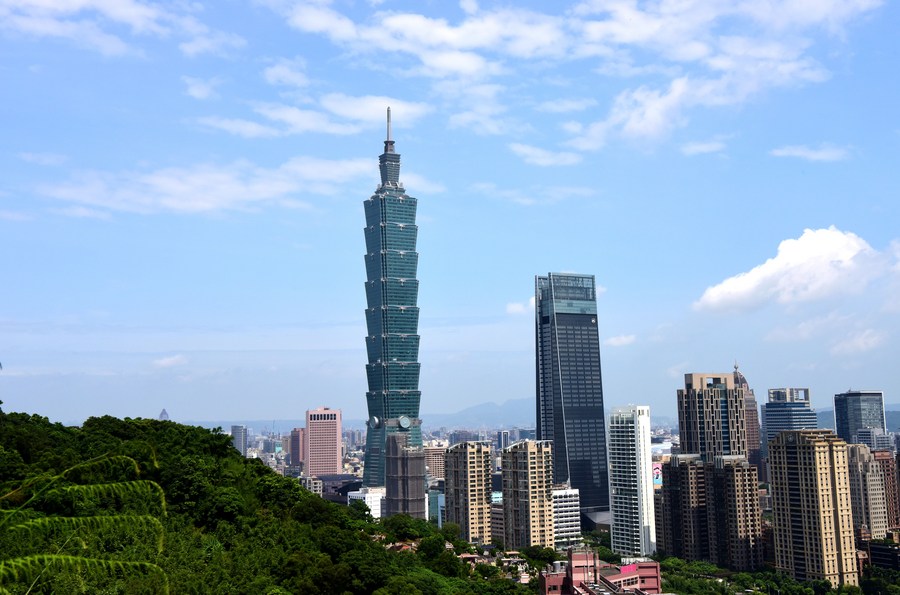
Photo taken on July 21, 2019 from Xiangshan Mountain shows the Taipei 101 skyscraper in Taipei, Taiwan. [Photo/Xinhua]
This is an editorial from China Daily.
Unsurprisingly, Japanese Deputy Prime Minister Taro Aso's remarks on "defending" Taiwan together with the United States drew prompt opposition and criticism from the Chinese side. Japan's dangerous collusion with the US to interfere in the Taiwan question will, no doubt, undermine the very political foundation of China-Japan ties.
According to Kyodo News, at a political fundraising party in Tokyo on Monday, Aso said Japan and the US would have to defend Taiwan if the island was "invaded", alleging that "an invasion" of Taiwan by the Chinese mainland could be seen as an existential threat, allowing Japan to exercise the right to collective self-defense.
Aso's remarks are not only wrong but also dangerous as they severely violate the principles set out in the four political documents between China and Japan. As Foreign Ministry spokesperson Zhao Lijian unequivocally said on Tuesday, China will never allow anyone to meddle in the Taiwan question in any way.
In her remarks rebuking Aso for his latest comments on Taiwan on Tuesday, Zhu Fenglian, a spokesperson for China's State Council Taiwan Affairs Office, went further to point out that Aso was just one among a number of Japanese officials who have repeatedly made wrongful remarks on Taiwan recently and grossly violated Japan's political commitment to China on the Taiwan question.
In their recent meeting in Tokyo in March, Japanese Defense Minister Nobuo Kishi and US Defense Secretary Lloyd Austin agreed to closely cooperate in the event of a military clash between the Chinese mainland and the island of Taiwan. One month later, the US and Japan issued a joint declaration whose content was an interference in the Taiwan question during Japanese Prime Minister Yoshihide Suga's visit to Washington.
All these indicate, in contrast to its previous low-key stance over Taiwan, Japan is adopting a more high-sounding policy as the Suga administration continues to shore up Japan's military alliance with the US and enthusiastically echoes the US strategic confrontation with China over sensitive issues such as the South China Sea, the Taiwan Straits and the East China Sea.
But Japan should be wary of misjudgment or miscalculation of the situation. Tokyo shouldn't underestimate Beijing's resolve, will and capability to defend its territorial integrity and sovereignty.
Considering that Japan has a military past and has committed innumerable crimes in its military aggression against China, its politicians should avoid sounding like war-mongers. Yet some still covet Taiwan till this day, showing that they have refused to learn the lesson from history.
With Japan and China already at odds over the Diaoyu Islands in the East China Sea, by interfering in the Taiwan question, Tokyo is simply setting another obstacle in the way of healthy bilateral ties. Tokyo should weigh the pros and cons of blindly following the US leadership in confronting China over sensitive issues.

 中文
中文





